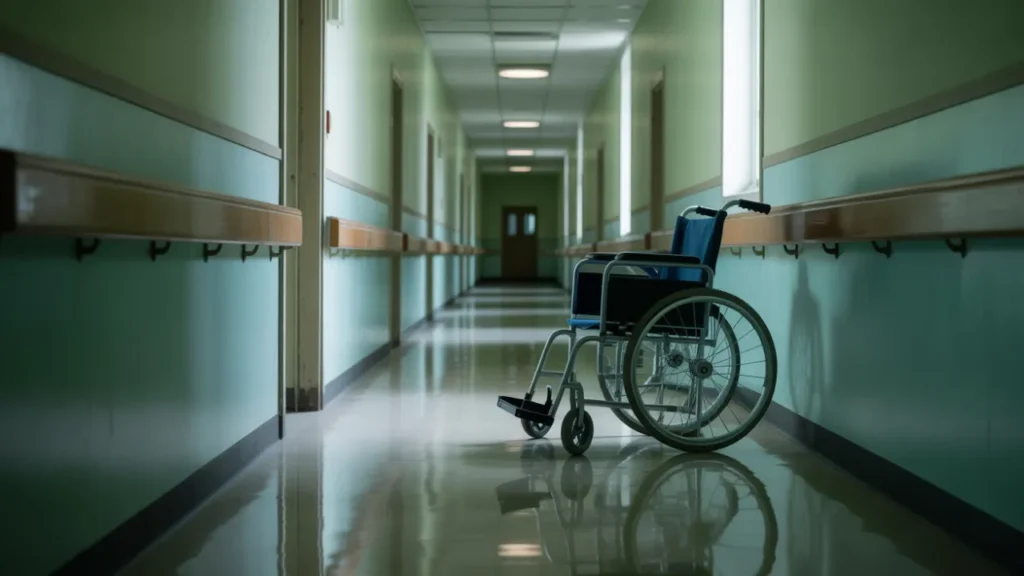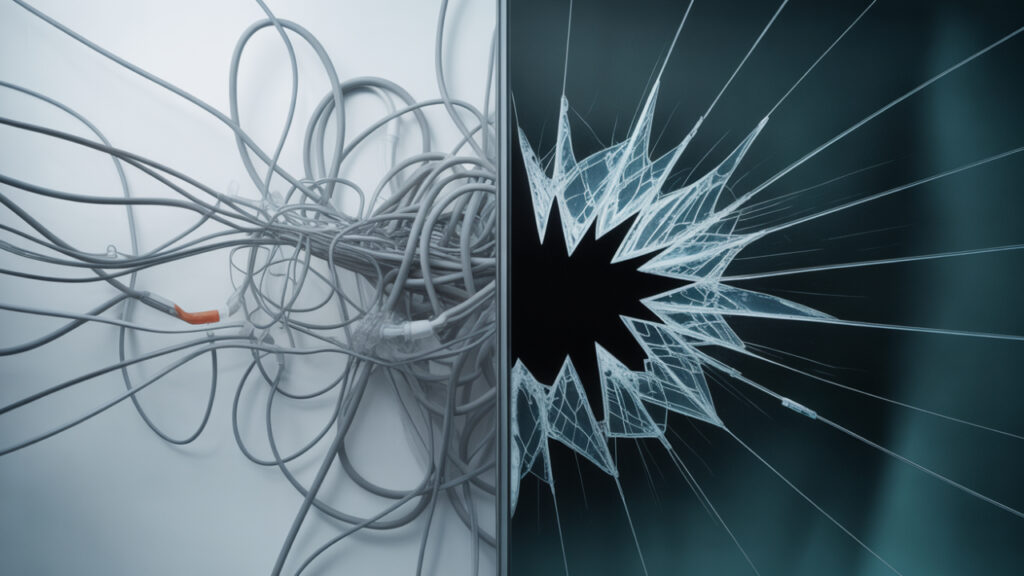Delirium vs Psychosis
Understanding the difference between delirium and psychosis is important for patients, families, and mental health professionals. Both conditions involve confusion, changes in behavior, and altered mental states, but they arise from different causes and need distinct approaches in psychiatry and nursing care. Knowing how delirium and psychosis differ helps improve quality of life and reduces risk from untreated disease.

What Is Delirium?
Delirium is a sudden disturbance in attention, alertness, and consciousness. It often develops within hours or days and can fluctuate throughout the day. Patients may experience confusion, memory problems, irritability, or speech changes.
Common Causes of Delirium
Delirium can stem from sleep deprivation, vitamin B12 deficiency, drug side effects, infection, or metabolic issues like hyperglycemia. Anticholinergic medications and alcohol withdrawal are also major risk factors. MedlinePlus and the National Library of Medicine note that delirium is common in older adults, especially those with dementia or dementia with Lewy bodies.
Delirium in Medical Settings
In nursing care, delirium is often seen in patients with acute illness or during hospitalization. The nursing process involves assessing mental state, speech, cognition, and insight. Early recognition prevents worsening confusion and supports faster recovery.
What Is Psychosis?
Psychosis is a state where a patient loses touch with reality. It often includes hallucinations, paranoia, derailment of thought, and lack of insight. Unlike delirium, psychosis usually develops gradually and is linked to psychiatric disorders.
Causes of Psychosis
Psychosis may occur in schizophrenia, bipolar disorder, or major depressive disorder with psychotic features. Substance abuse, hyperthyroidism, and pregnancy-related complications may also trigger episodes. The Diagnostic and Statistical Manual of Mental Disorders classifies psychosis as a core symptom across multiple conditions.
Psychosis and Mental Health Disorders
Psychosis is a hallmark feature of schizophrenia but may also affect patients with severe mood disorders. Stress, insomnia, and poor hygiene can worsen symptoms. Therapy and antipsychotic medication, such as haloperidol or clozapine, are often required to restore mental health and reduce relapse risk.
Delirium vs Psychosis: Key Differences
While both conditions involve altered mental states, there are important distinctions.
- Onset: Delirium appears suddenly; psychosis develops gradually.
- Consciousness: Delirium affects alertness; psychosis usually spares consciousness.
- Memory and Cognition: Delirium impairs memory and attention; psychosis mainly distorts reality and perception.
- Causes: Delirium often stems from a medical condition or drug side effect, while psychosis is tied to psychiatric disease.
Patients with delirium may regain normal cognition once the cause is treated, while psychosis often requires long-term psychiatric care.

Symptoms of Delirium
Delirium symptoms include confusion, impaired memory, speech difficulties, irritability, and reduced consciousness. Patients may struggle with attention and insight, shifting between states of awareness.
Hallucinations in Delirium
Hallucinations in delirium are often visual and fluctuate. For example, a patient may see people who are not present during episodes of confusion. Nursing care focuses on maintaining safety and supporting orientation to reality.
Symptoms of Psychosis
Psychosis symptoms include hallucinations, paranoia, disorganized speech, and derailment of thoughts. Patients may hear voices, believe false ideas, or show bizarre behavior.
Hallucinations in Psychosis
Hallucinations are usually auditory and persistent. A patient may hear voices that criticize them or command behavior. This loss of reality connection is a defining trait of psychosis.
Risk Factors for Delirium and Psychosis
Risk factors for delirium include dementia, vitamin deficiencies, infections, sleep deprivation, and use of anticholinergic medications. Older age and preexisting brain disease raise prevalence rates.
Psychosis risk factors include genetics, substance abuse, mood disorder, and dopamine imbalance. Stress, insomnia, and metabolic issues like hyperthyroidism may also increase vulnerability.
Diagnosing Delirium and Psychosis
The diagnostic process involves careful evaluation of symptoms, medical history, and patient behavior. Psychiatry and nursing professionals use structured tools to differentiate between the two.
Delirium Diagnosis
Clinicians assess alertness, orientation, metabolism, vitamin levels, and side effects from medications. Identifying an underlying disease or drug trigger is key.
Psychosis Diagnosis
Psychosis diagnosis often involves reviewing psychiatric history, family history of schizophrenia or mood disorder, and evaluation of hallucinations or derailment of thought. The Diagnostic and Statistical Manual of Mental Disorders provides official criteria.
Treatment for Delirium
Treatment begins with identifying and correcting the cause. Restoring hydration, improving sleep hygiene, correcting vitamin B12 deficiency, and managing drug side effects are crucial.
Medications for Delirium
Low doses of haloperidol or other antipsychotics may be used short-term. Medicine is applied carefully, especially in patients with dementia with Lewy bodies, due to sensitivity to side effects. Nursing care includes supporting orientation, reducing confusion, and ensuring patient safety.
Treatment for Psychosis
Treatment for psychosis usually involves antipsychotic medication, therapy, and long-term psychiatric care. Clozapine may be used for treatment-resistant schizophrenia.
Therapy and Recovery
Therapy helps patients improve insight, reduce stress, and manage anxiety. Cognitive and behavioral approaches improve coping and daily function. Nursing professionals monitor medication adherence, side effects, and patient quality of life.

How Revival Mental Health Helps Patients
At Revival Mental Health in Southern California, patients with psychosis, delirium, or related conditions can access therapy, psychiatry, and medication management. Our team supports individuals dealing with schizophrenia, bipolar disorder, or mood disorder symptoms.
We also provide help for patients with substance abuse, insomnia, or memory problems that may trigger mental health issues. With careful evaluation, therapy, and evidence-based medicine, patients gain stability and improved mental state.
Impact on Patients and Families
Both delirium and psychosis can cause stress and fear for families. Patients may act in unsafe ways due to confusion or paranoia. Early treatment improves cognition, speech clarity, and emotional stability.
Mental health professionals focus on reducing risk, restoring alertness, and supporting daily hygiene and coping skills. Proper care helps patients regain reality and enhances long-term outcomes.
Improving Quality of Life Through Treatment
Whether caused by sleep deprivation, substance abuse, or a psychiatric disorder, timely treatment matters. Patients receiving therapy and medications often regain insight, reduce hallucinations, and improve cognition.
Delirium can fully resolve once the underlying disease is treated, while psychosis often requires long-term therapy and antipsychotics. Both benefit from strong nursing support and family involvement.
FAQs
- What is the main difference between delirium and psychosis? Delirium involves sudden changes in consciousness and alertness, while psychosis primarily affects reality perception without reducing awareness.
- Can delirium turn into psychosis? Delirium and psychosis are distinct, but delirium can trigger psychotic-like symptoms. Once the cause of delirium is resolved, these symptoms usually disappear.
- What medications are used for psychosis? Common medications include haloperidol, risperidone, and clozapine. These antipsychotics reduce hallucinations, paranoia, and disorganized behavior.
- Does Revival Mental Health treat delirium and psychosis? Yes. Revival Mental Health offers psychiatry, therapy, and medication support for patients with delirium, psychosis, schizophrenia, bipolar disorder, and related mental health concerns.





